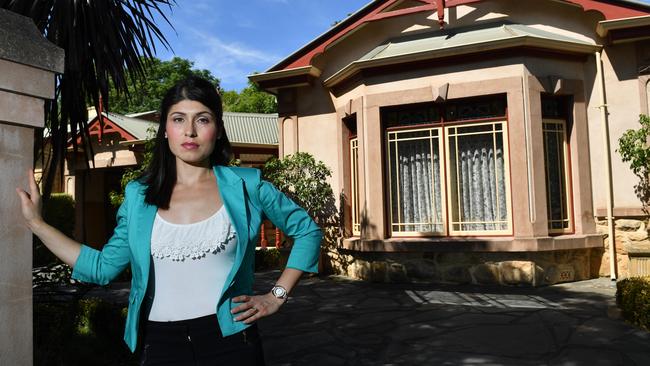Local mortgage brokers dig in over trail commission as Labor softens stance
Local mortgage brokers have backed Labor’s softening stance on the banking royal commission’s proposals for the sector, while continuing to fight for controversial trailing commissions.

SA Business
Don't miss out on the headlines from SA Business. Followed categories will be added to My News.
- Brokers warn banks will cash in on royal commission changes
- SA brokers meet to campaign against royal commission proposals
- Banking royal commission: What the Hayne report means for you
- Opinion: Banks need to do better, not just tell us they will
Local mortgage brokers have backed Labor’s softening stance on the banking royal commission’s proposals for the sector, while continuing to fight for controversial trailing commissions.
Following intense lobbying from the broking industry Labor has changed its position on broker remuneration, according to Sky News, after initially pledging to adopt all 76 royal commission recommendations.
Labor is considering a lender pay model, with either a flat upfront fee or a fee based only on the part of the loan used to buy a house.
The change would discourage brokers talking people into borrowing more than they need to pay for other assets such as a car, shares or overseas holiday.
However, it falls short of Commissioner Hayne’s recommendation that the borrower, not the lender, pay their broker the upfront fee.
Rise High Financial Solutions founder Marissa Schulze welcomed signs of a compromise, but argued against the introduction of a flat fee model.

“It’s pleasing that both parties see that a consumer paid model would not be in the consumer’s best interests as it would reduce competition — that’s excellent,” she said.
“But I’m not sure a proposal for a flat fee model, because of a perceived conflict around loan size, is the answer, because there’s no conflict at the moment — we only get paid based on what a borrower draws down minus any offset.
“The other thing with that model is that people who need smaller loans — so on an Australian average that would include all South Australian people — would pay a lot more relative to their loan.
“Low income earners and those with small amounts of debt would subsidise our services for people with larger debt and who can borrow more.
“People with smaller loan amounts already pay higher interest rates, so while it may solve a perceived conflict, it would create a much bigger problem.”
Home Loans and More director Jason Eitel said consumer backlash had prompted Labor’s shift, but disputed the suggestion that brokers convinced clients to borrow more in order to increase commissions.

“No one does that — why would we do that for a tiny little bit extra upfront,” he said.
“If anything we encourage people to borrow less because it’s so much easier to get a deal through.
“The industry has evolved over 30 plus years, and we now have a peak model for how it works symbiotically between banks, borrowers and brokers — I can’t think of any industry where a change like this has benefited the consumer.”
The mortgage broking industry has embarked on an advertising blitz since the release of the royal commission’s findings, claiming the end of trailing commissions coupled with a borrower pay regime would wipe out the industry and decrease competition in the mortgage market.
A petition set up by the Mortgage & Finance Association of Australia has attracted more than 66,000 signatures.
While the government and opposition have both backed plans to ban trailing commissions, Financia managing director Angelo Benedetti has not given up hope.
“We need to keep on fighting because there’s a cost of running a business like ours, and for us to maintain our business we need that recurring income,” he said.
“Without it we can’t employ staff and can’t deliver the type of service that our clients have come to expect.”



